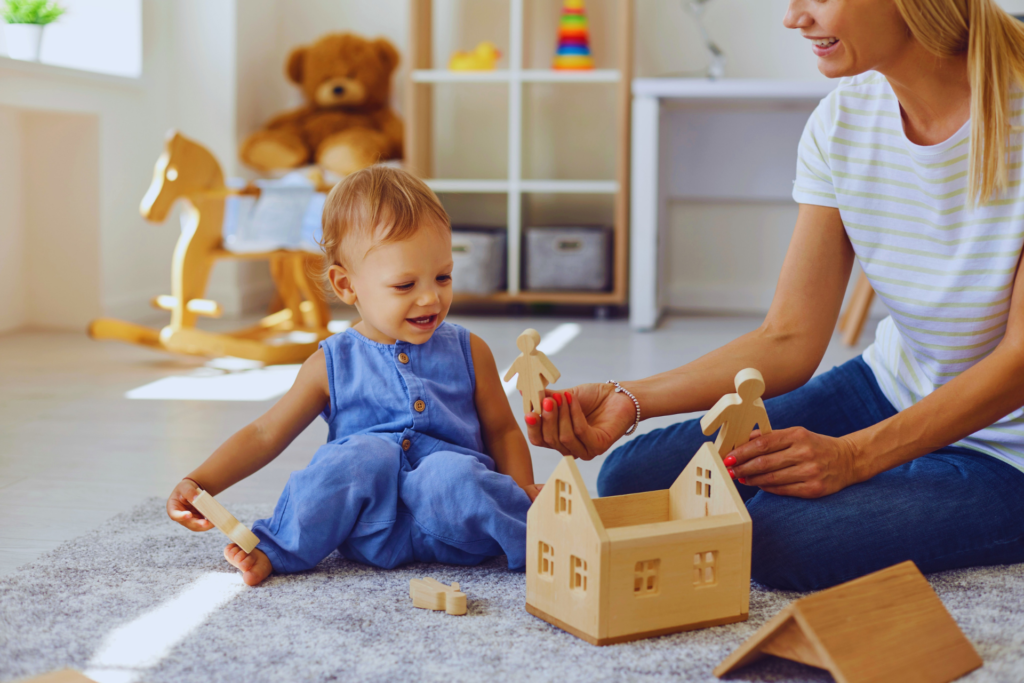Have you ever felt like you weren’t hitting the mark as a parent? Maybe you know that you’re making it by (I mean, the kids are surviving, right?) but you’re just not where you want to be when it comes to being active, present, and proactive as a parent.
What’s the solution to this feeling? Should you work on being a “better parent”? Not so fast. There might be something more at work here. Think about this…
Life as a parent can get overwhelming fast. When things get overwhelming, our stress levels go up and we’re more likely to argue with our spouse, blow up on our kids, and generally be an unpleasant person to be around. And it all starts by trying to do too many things.
Then we find ourselves in a situation where we’re trying as hard as we can to be more loving, kind, and generous with our family, but we just don’t feel like we have it in us. That’s because we’re emotionally bankrupt, and we’re trying to draw from an empty account.
That’s why the solution to “better parenting” has more to do with margin than it does with our abilities as parents. So many of us live with no margin in our time, energy, or finances, and it leaves us stressed and unable to focus on the moments in front of us as a result.
Finding margin in your finances is pretty simple: Spend less or make more, and live on less than you make. If you don’t make enough money, then prioritize the things that will make up that gap. If you spend too much, then prioritize the systems and processes needed to make sure spending stays within your limits. Then eliminate anything nonessential that doesn’t work to that end until you have margin there.
Doing so will free your mind up to be fully active in your parenting rather than only giving half of yourself because you’re overwhelmed due to lack of margin then wondering why you’re not a better parent.
But I get it, this is a struggle for most parents. And regardless of where you lack margin in your life, everything you do ultimately comes down to a mismanagement of our time and energy.
So how can we keep this from happening? Because we all know it can feel like our list of responsibilities grows faster than we realize, and before we know it, we’re overwhelmed.
Think of your time as a jug of water. In that jug, there’s only so much water, right? Now imagine filling five glasses of water completely full from the jug. After filling the five glasses to the brim, there’s no more water left in the jug. All of the water is now in glasses.
But then you pull out another glass – a sixth one. What will you have to do?
Naturally, you’re going to have to take one of the other glasses and pour some water from it into the sixth glass. The problem is, you’re going to have to give up some water from that glass.
But maybe you’re smart, and you decide to take a little bit of water from each of the five glasses to put in the sixth that way there are even. No harm done, right?
But then you pull out a seventh glass and you have to do the same process again with the six glasses you already have – you pour out a little bit of water from all six classes until the seventh glass is even with the other six.
Now what are you left with? You’re left with seven half full glasses. And that’s exactly what most of our lives look like.
We all have a certain amount of energy, and we pour that energy into a reasonable number of things. But then as life progresses, we begin to add activities and relationships that pour from our reservoir. Except for most of us, that reservoir is pretty much empty because it’s already being poured out into a number of other things. So the only thing we can do is pour from the existing “glasses” we’re already investing energy into in order to fill the new glass.
The problem is, every time we add a glass, it can only take from one of our other glasses. There’s no way around it.
We tend to think we have an unlimited supply of energy. We think we can keep adding little things and it won’t affect the others, but it’s just not true. We have to pay attention to how many “glasses” we can reasonably fill with our daily, weekly, and monthly responsibilities, and be very cognizant of how adding things to the list will affect the others.
Because if you’re going to be a present and effective parent, you’re going to have to optimize your time and energy. And here’s the important point:
Being a better parent is less about “doing better” and more about reducing the number of things that take away from our energy to parent well.
Even though we feel like we’re doing a good thing by taking on more responsibilities, one of the biggest barriers to being an active and purposeful parent is to stretch yourself too thin.
Instead, focus on the things that bring the most value to others and yourself, and let go of all the periphery nonessential things. You’ll find that being more selective with your time and attention will make you more patient, more present, and ultimately more effective.
The bottom line is this: Make sure the things that matter most are in your list of “glasses” and ruthlessly eliminate the “good-but-not-most-important” time-hogs.
After all, too many of us are living with a ton of half empty glasses wondering why we always seem to feel like we’re not hitting the mark as parents. Chances are, it’s not because you need to be a better parent. It’s because you need to be better at saying no.



